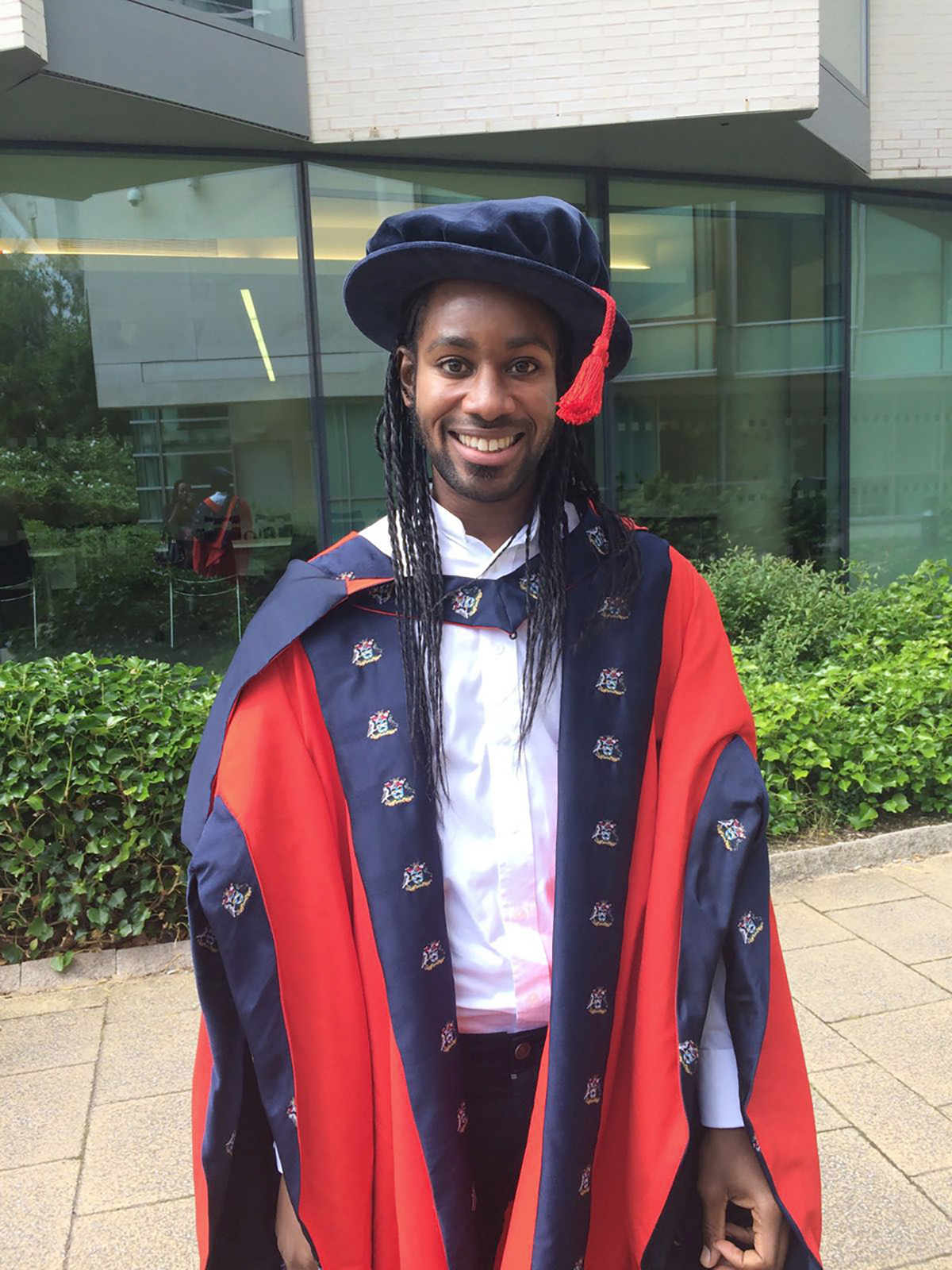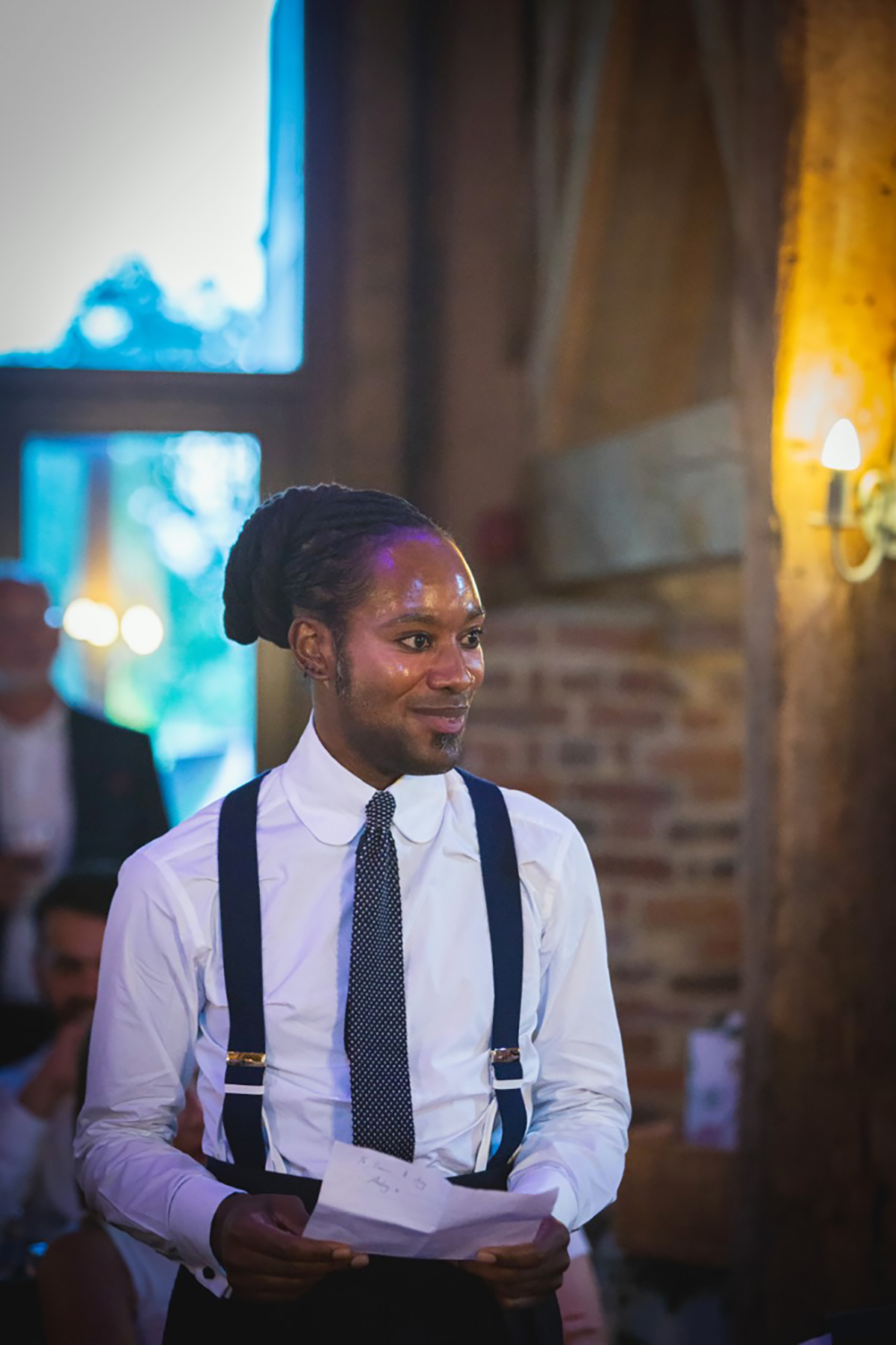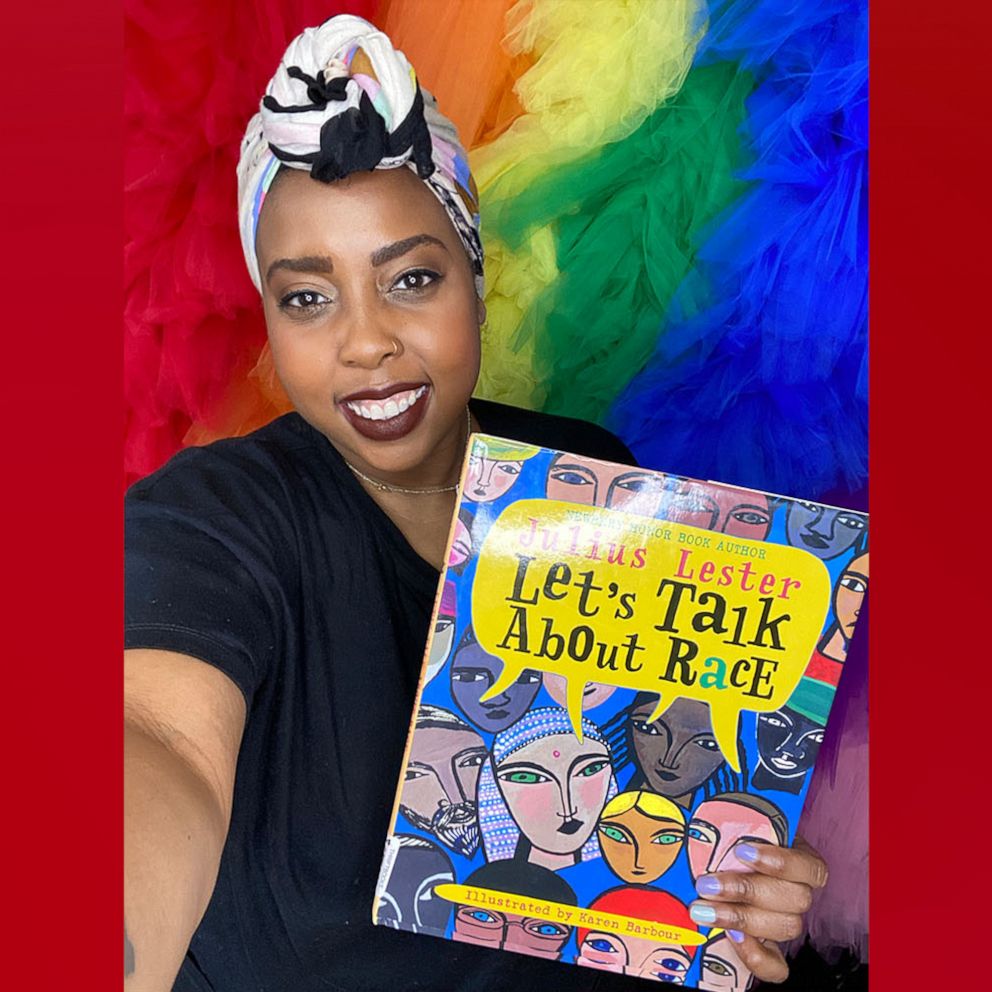Meet Cambridge's youngest ever Black professor, Jason Arday
Arday could not speak until age 11 and could not read or write until age 18.
Jason Arday, 37, made history this month, becoming the youngest Black professor ever at the prestigious Cambridge University in the U.K.
"I want it to be the most normative thing that Black professors occupy spaces in these types of institutions all around the world," Arday told ABC News.
The role was not just a win for him professionally, but a reflection of how far he's come personally. The South-London native said he was exposed to systemic disparities in his community as a child and dealt with neurodivergence at an early age.
Neurodivergent is a non-medical term that describes people whose brains develop or work differently than others, according to Cleveland Clinic. This means that a person might experience different struggles than people whose brains develop or work more "typically." While some people who are neurodivergent may have medical conditions such as autism spectrum disorder, attention-deficit hyperactivity disorder or Down syndrome, a medical condition isn't required to have neurodivergence, nor does neurodivergence mean you have a medical condition.
Arday said he was diagnosed with autism at 3 years old and possessed a global development delay, causing him to be unable to speak until he was 11, and unable to read and write until he was 18. According to what Arday's mother told him, his first word at age 11 was "hello," in the "proper context."
Although Arday said that though he remembers school being difficult, he never felt disabled because of his disabilities.
"My mom just kind of really reiterated how special I was and emphasized that [I] may not be the same as everybody else, but you have other gifts, and you can utilize them and mobilize them in ways that can really help to change the world," he said.
Referring to the neurodivergent community, Arday added, "What I learned about all of those people is that they're incredibly gifted. And actually, the thing that was stunting or prohibiting those gifts, were kind of the institutional and systemic instruments that often prohibited individuals from disadvantaged backgrounds, particularly those of color in terms of being more socially mobile."
Arday eventually went on to earn two master's degrees before becoming a physical education teacher. He then earned his Ph.D. at Liverpool John Moores University in 2015.

While his degrees were in education, he always had an interest in sociology and taught himself the subject while simultaneously working at a supermarket and lecturing during the day, "struggling to make ends meet."
Arday received job offers from various universities, including Ivy League schools in the U.S., he told ABC News, but he said Cambridge had long been one of his three big goals.
"At the time, I was 27, and the first [goal] was to get a Ph.D. -- and the second one was to look after all my friends and family," he said. "The third [goal] was to one day work at Oxford or Cambridge."

Arday ultimately made history as the youngest Black professor at Cambridge, joining the ranks of one of the most prestigious universities in England, along with five other Black professors at the university overall, according to the BBC.
"Not only is Jason Arday a world-class scholar, he also brings a wealth of experience that can help us to take forward our efforts to widen participation at all levels," said Professor Hilary Cremin, head of the faculty of education at Cambridge. "Hopefully it is becoming increasingly clear that with concerted effort and a genuine commitment to change, those barriers that still exist either to working or studying at top universities in the U.K. can be overcome."
According 2021/22 school year data from the Higher Education Statistics Agency, of the 21,750 professors in the U.K. with known ethnicity, less than 1% -- 165 total -- were Black.

Arday -- who, in addition to his career, said he has worked with more than 70 U.K.-based charities over a 20-year period -- said he wants to make sure that those for whom he is blazing a trail are at the core of his story.
"The mission is to democratize and redistribute resource in academia, to the most disadvantaged within society, so that they have access to the global academy," Arday said. "So that they have access to higher education. So that they're able to become more socially mobile through the vehicle of education, because we know that education has the power to do that."







